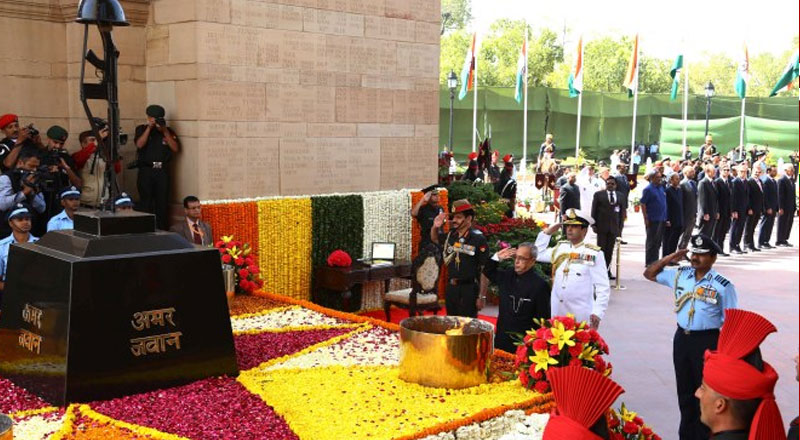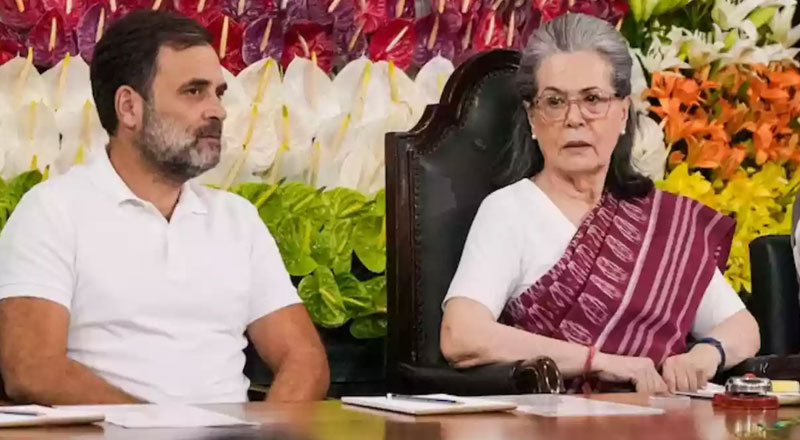The eternal Amar Jawan Jyoti flame at India Gate, which has been burning continuously for five decades, was put out on Friday and merged with the flame at the National War Memorial, which is just 400 metres away on the other side of India Gate.
The Amar Jawan Jyoti was constructed as a memorial for Indian soldiers who were killed in action in the 1971 Indo-Pak war. The war which subsequently India won, led to the creation of Bangladesh. It was inaugurated by the then prime minister, Indira Gandhi, on January 26, 1972.
The National War Memorial was inaugurated by Prime Minister Narendra Modi on February 25, 2019. On the new War Memorial, the names of 25,942 soldiers have been inscribed in golden letters on a granite tablet.
The move however triggered a political firestorm with the Opposition accusing the government of attempting to rewrite history, a charge that members of the establishment and the ruling party rejected.
Amid this furore, the Prime Minister announced that a “grand statue” of Netaji Subhas Chandra Bose will be installed beneath the empty canopy at India Gate which has been vacant since 1968 when the statue of King George V was removed and taken to Coronation Park in northwest Delhi.
The Prime Minister, in a Twitter post, wrote: “At a time when the entire nation is marking the 125th birth anniversary of Netaji Subhas Chandra Bose, I am glad to share that his grand statue, made of granite, will be installed at India Gate. This would be a symbol of India’s indebtedness to him.”
“Till the grand statue of Netaji Bose is completed, a hologram statue of his would be present at the same place. I will unveil the hologram statue on 23rd January, Netaji’s birth anniversary,” he said.





